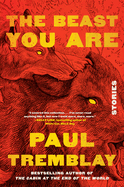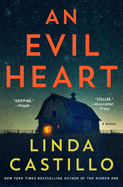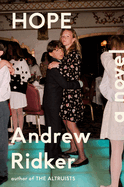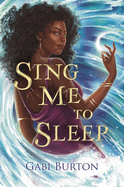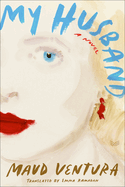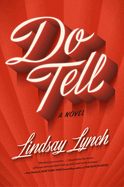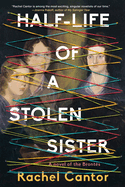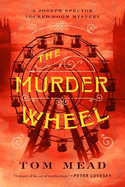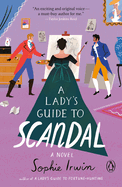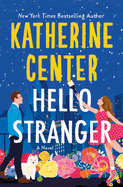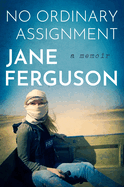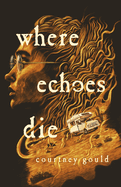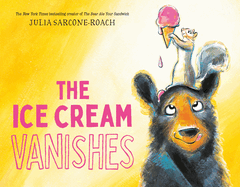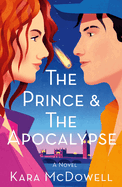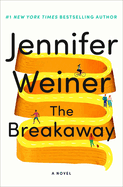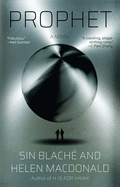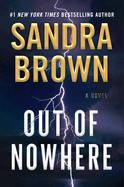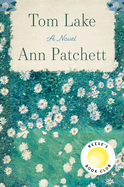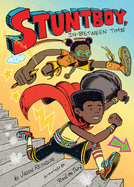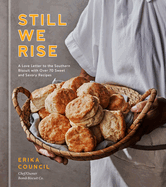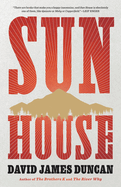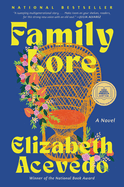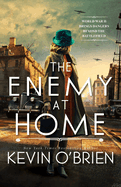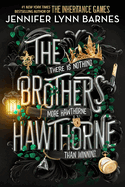Friday, July 14, 2023
We review an array of excellent fiction this week, including Paul Tremblay's second short story collection, The Beast You Are, with its "15 genre-bending gems"; the thriller An Evil Heart, in which Linda Castillo's "skillful storytelling" continues to follow chief of police Kate Burkholder in an Amish Ohio town; Hope, Andrew Ridker's "loving and hilarious satire of liberal pieties"; and Everyone Wants to Know, Kelly Loy Gilbert's "transfixing, provocative" novel about the fallout of a reality-TV star family. Plus so many more!
Don't miss the inner workings of the collaboration between Julia Vee and Ken Bebelle, co-authors of Ebony Gate, in The Writer's Life.
The Beast You Are
by Paul Tremblay
Bram Stoker Award-winning horror author Paul Tremblay (Survivor Song; Growing Things and Other Stories; The Cabin at the End of the World) offers 15 genre-bending gems in his second story collection, The Beast You Are. In "Ice Cold Lemonade 25¢ Haunted House Tour: 1 Per Person"--which blurs the lines between fiction and memory in ways reminiscent of Tremblay's novel The Pallbearer's Club--an outcast kid uncovers a potential connection and an uncanny, nightmarish creature in the house of his crush. "Mostly Size" and "Red Eyes" feature a boy and girl, respectively, facing the enormity of what they are meant to fear and finding affinities they didn't know they had. Finally, in the collection's masterful concluding novella, "The Beast You Are," a society of anthropomorphic animals traces the lives of two survivors of a violent sacrificial rite.
With unmatched consistency, Tremblay undertakes in enlightening ways the horror tropes that clearly haunt him. With an achingly '80s/'90s nostalgia and almost-comic sensibility, most of the stories in this collection center the experiences of children. This emotionally grounds the weight of their shiver-inducing scares. Although these stories confront what it means to actually see the monster that lurks in the shadows, they also tend to find their climaxes in quiet but nonetheless essential revelations, rather than in their gore-filled atrocities. Perhaps this is why the stories that resonate (purposefully or not) as pandemic stories, such as "The Blog at the End of the World" and "I Know You're There," succeed at communicating the horror of despair, grief, and intangible escalation without burying themselves beneath the weight of an all-too-soon present. --Alice Martin, freelance writer and editor
Discover: Paul Tremblay confirms his place as a modern horror master with this collection of 15 emotionally evocative stories that will appeal to fans of The Cabin at the End of the World.
Hope
by Andrew Ridker
Does a commitment to doing good deeds entitle a person to some ethical leeway? The question is teased in Hope, Andrew Ridker's loving and hilarious satire of liberal pieties, starring the Greenspans of Brookline, Mass., who--despite seeming to have it all--make choices that risk it all for that elusive American-branded commodity: happiness. Scott Greenspan has a successful cardiology practice. His wife, Deb, approaches political activism through her synagogue with the single-mindedness with which she used to approach parenting. Like Scott and Deb, their grown children are dedicated to meaningful work: one is pre-med, and the other has a job in publishing. "You're the Greenspans, for God's sake. This kind of thing doesn't happen to people like you," Scott's friend Marty says after Scott confesses that Deb has convinced him to embark on an open marriage. One can only imagine Marty's bewilderment if he knew that Scott was personally profiting by fudging data in a clinical trial.
Set in the latter years of the Obama presidency, at the height of what one character calls "Starbucks capitalism," Hope shares the perspectives of each of the four Greenspans, all of whom face crises of conscience and take Olympian-level leaps at self-justification. (As Scott sees it, "It was hard to feel as though he had transgressed; surely, any rule worth taking seriously would be more difficult to break.") Ridker (The Altruists) may have written the novel of early-21st-century liberal idealism, haunted as Hope is by the disillusionment that almost inevitably follows too-high expectations. --Nell Beram, author and freelance writer
Discover: Set in the latter years of the Obama presidency, Andrew Ridker's sophomore novel is a loving and hilarious satire of liberal pieties, starring the Greenspans of Brookline, Mass.
My Husband
by Maud Ventura, transl. by Emma Ramadan
My Husband, written by debut novelist Maud Ventura and translated from the French by Emma Ramadan, is a sexually charged contemporary drama, crackling with marital intrigue and domestic unease. The story, set in a Paris suburb, unfolds over the course of a single eventful week, and is narrated by a high school teacher who is besotted with her husband and fears his betrayal to the point of near insanity. Blessed with beauty and intellect, she works as a French-English translator for a publishing house in addition to her teaching job.
The couple remains enigmatic, unnamed protagonists in this darkly humorous story of a woman's obsessive infatuation with the man she fell in love with 15 years ago and her willingness to go to any lengths to make sure her marriage survives. Not only is he handsome and successful, but they also have two well-mannered children and a stunning home, an absurdly perfect trifecta of good fortune that only exacerbates her intense paranoia about losing it all.
Ventura is clearly enjoying herself as she skillfully mines the wife's overactive imagination for comedy, while also acknowledging the suffering that results from her chronic self-doubt. My Husband is an incisive character study of a woman's complicated interiority, her manic, manipulative behavior concealed beneath a perfectly composed exterior. The author's finely crafted scenes reveal so much more than the narrator intends to share, and she expertly ratchets up the tension until nerves are unbearably frayed, both the narrator's and the readers'.
Ventura's cleverly constructed, one-sided portrait of a marriage delivers a breathtaking conclusion that is as unexpected as it is deviously brilliant. --Shahina Piyarali, reviewer
Discover: A wife is convinced her husband is about to betray her in this darkly humorous, suspenseful domestic drama set in Paris.
Forever Hold Your Peace
by Liz Fenton and Lisa Steinke
Liz Fenton and Lisa Steinke's breezy eighth novel, Forever Hold Your Peace, puts a twist on the tired Bridezilla stereotype: What if the wedding-planning monsters are the moms--once best friends but estranged for more than 25 years? When Olivia and Zach meet, fall in love, and get engaged in Positano, all four of their (divorced) parents understandably have reservations about the romance. But when the six of them meet for brunch back in California, everyone is shocked to discover that Zach's mom, Amy, and Olivia's mom, June, are college besties who haven't spoken in two decades. As June and Amy battle over the details of their children's big day, Olivia and Zach try to balance the Momzillas' feud with the wedding they want. The dads--one of whom has a secret--are mostly along for the ride, but that same secret will have huge implications not only for Zach and Olivia's future, but for June and Amy's.
Fenton and Steinke (How to Save a Life; The Good Widow) unspool their story in juicy, hilarious fashion, dialing up the drama and deep feelings for laughs and gasps. Though a few incidents are truly over-the-top, most of the dynamics feel relatable: Who hasn't wondered how to move on after a gut-wrenching betrayal, or mourned the loss of a once-vital friendship? Both the happy couple and the moms must do some soul-searching if the big day's going to come off right, and Fenton and Steinke take readers on a highly entertaining journey to a happily-ever-after. --Katie Noah Gibson, blogger at Cakes, Tea and Dreams
Discover: The breezy eighth novel from BFF writing duo Liz Fenton and Lisa Steinke features two ex-best friends thrown back together when their children get engaged.
Do Tell
by Lindsay Lynch
Debut novelist Lindsay Lynch takes readers to the early days of Hollywood glitz and glamour in Do Tell, a story that highlights the many ways fame has always shaped the famous--and their fans--long before the age of social media.
Edie O'Dare is scrappy: the eldest daughter of a poor family living in New York, she's worked to put food on the table for herself and her family, supported her younger siblings through their educations, and taken every step possible to grasp at a better life for herself. As a teenager, she finagles her way into a Hollywood studio tour and never looks back, securing a contract with the prestigious FWM Studios. She acts in bit parts for the duration of her seven-year stay and, to supplement her income, sells insider tales of industry parties and fêtes to the Hollywood columnists.
When the final months of her acting contract coincide with a startling account of the assault of a young actress by a much older, more famous actor, Edie's attempts to help the girl rail against the elite and powerful of Hollywood end up launching Edie into a new career--this time as a gossip columnist herself, carving out a life for herself that frequently comes at the expense of those she reports on.
Lynch brings the golden age of Hollywood to life, but the stunning Do Tell is more than a recounting of an idealized time in the film industry, probing into questions of fame and notoriety, patriarchal structures and sexism, and the power of story to create--or ruin--a life in one fell swoop. --Kerry McHugh, freelance writer
Discover: Do Tell is a vivid novel of the early days of Hollywood glitz and glamour, and tells the story of one woman making her way in a world dominated by fame, power, secrets--and men.
Excavations
by Kate Myers
Kate Myers's smart debut novel invites readers to ancient Greece via a modern-day archeological dig, as four women become unlikely allies in taking down their patriarchal, sexist boss. Excavations opens with none other than an ancient artifact that speaks directly to readers (reminiscent of a Greek chorus addressing a long-ago audience): "What I'm trying to tell you: there's never some dude's foot just sticking up out of the ground. Something happened, you moron." That something--evidence that the artifacts are celebrating the athleticism of women, not men--has been long hidden by the man in charge of the dig, much to the growing chagrin of the women who work for him. "It had taken decades of digging and brushing, of polishing the ground until it became a mirror," a place where the women could see their history--not just that of the men whose stories have for so long dominated the narrative of Greek history.
Myers's clever sarcasm and sharp wit balance the otherwise heavy subject of historical erasure at play: "Charles had made a chunk of change erecting this phallus palace, and he would die before admitting it was all built on lies." Despite the building tension between Myers's main characters--around career competition, ex-boyfriends, lost artifacts, melting Popsicles, and other conflicts both large and small--the four come to realize that to topple their self-aggrandizing boss, they'll have to work together. Hilarious and heartfelt, Excavations delivers a pitch-perfect summer novel steeped in bright Greek sunshine, and it all builds to a satisfying comeuppance borne of women determined to tell their own stories--past and present alike. --Kerry McHugh, freelance writer
Discover: A smart, quirky novel takes readers to ancient Greece via a modern-day archeological dig, as four very different women become unlikely allies in taking down their patriarchal, sexist boss.
Half-Life of a Stolen Sister
by Rachel Cantor
With Half-Life of a Stolen Sister, one can add Rachel Cantor (A Highly Unlikely Scenario) to the list of authors who have gleefully employed anachronisms in the service of a historical novel. Her subject is the Brontë family or, rather, a fictionalized version known as the Bronteys but with the same given names: Charlotte, Emily, Anne, Maria, Elizabeth, and Branwell, "the Only Boy." It's never clear what era this is, but that's part of the fun. Characters use Victorian locutions such as, "Dear Lady, How I long to meet you." That's a line from a personal ad written by the family's widowed patriarch. Other characters eat canned dinners of "spaghettios," wear headsets, ride the subway--the unnamed setting feels like New York--and take soy milk with their tea.
Cantor also plays with form, with chapters written as a play, an e-mail exchange, a diary entry, and even a radio interview with the editor of novels written by the three Bells. The last is one of Cantor's many knowing references to the real Brontës: Charlotte, Emily, and Anne published novels and poetry as a trio of men known as the Bells. That's one of the themes that emerges here: the history of sexism in publishing and elsewhere, with the anachronisms suggesting that what was true in the Brontës' time hasn't fully ended. Readers familiar with the Brontë works will appreciate this novel more than those who aren't, but it's a clever work by one of America's most original stylists. --Michael Magras, freelance book reviewer
Discover: In Half-Life of a Stolen Sister, Rachel Cantor gleefully employs anachronisms and multiple literary forms to tell a fictionalized tale of the Brontë family, known here as the Bronteys.
Mystery & Thriller
An Evil Heart
by Linda Castillo
Linda Castillo (Among the Wicked; Breaking Silence) opens a window on an Amish community in Ohio, centering on Painters Mill's chief of police Kate Burkholder, making her 15th appearance in the perfectly plotted An Evil Heart, and shows how their simple ways don't shield them from deceit, crime, or violence. Kate's case involves the murder of 21-year-old Aden Karn, killed by a crossbow on a deserted road. At first, Aden seems an unlikely murder victim--raised in a respected Amish family, engaged to a lovely young woman, and seemingly well-liked by his friends, co-workers, and boss, who praised his work ethic. But another side emerges. Aden was on rumspringa, a rite of passage during which younger Amish have free rein before their baptism, going "from living a godly life to hanging with the devil." Aden became a nasty drunk and a sexual predator, associating with thugs. Another death has Kate and her team further investigating Aden, who eventually appears more reprehensible than his killer.
Castillo's skillful storytelling further delves into the fascinating Kate, who was raised Amish but left the community 18 years before, though she still has respect for its members. Her singular perspective serves her and her community, despite "an incongruity inherent in being a cop and formerly Amish. Those two worlds are incompatible and clash in a fundamental and profound way." Kate is also planning her wedding, surprised at the emotions it stirs. An Evil Heart proves this is a series that continues to soar. --Oline H. Cogdill, freelance reviewer
Discover: The 15th installment of this perfectly plotted thriller series investigates the death of a young Amish man during his rumspringa rite.
The Murder Wheel
by Tom Mead
A fairground and a magic show are the scenes of three different crimes in Tom Mead's triply clever salute to the golden-age whodunit, The Murder Wheel. It's 1938, and magic-obsessed London lawyer Edmund Ibbs is defending Carla Dean, following her husband Dominic's murder at a fairground. The Deans were the only people in their Ferris wheel carriage and, upon its return to earth, Dominic was found to have been shot at close range. A pistol was in Carla's hand, but she insists that, although she picked it up from the carriage floor, she didn't shoot it. After Ibbs visits Carla in prison, he spends the evening at Professor Paolini's show, where the magician's crate illusion trick goes seismically wrong: Paolini reveals to the audience not, as is customary, a helper hiding inside the crate but the dead body of another man. And that's not the night's only corpse.
Sure enough, retired conjuror Joseph Spector, who was first introduced in Death and the Conjuror, is on the scene and puts his mind to solving the crime. Rather like a conjuror himself, Mead rolls out a bag of tricks, including word puzzles and crime-scene diagrams. In an old-timey touch, he interrupts the narrative toward novel's end to goad readers into cracking the case, noting that "all the evidence is there, and in plain sight too." Which isn't to say that readers will likely get far with solving The Murder Wheel. Fortunately, although magicians never reveal their secrets, mystery writers do. --Nell Beram, author and freelance writer
Discover: A fairground and a magic show are the scenes of three different crimes in Tom Mead's triply clever salute to the golden-age whodunit.
The Centre
by Ayesha Manazir Siddiqi
Set in contemporary London, with eventful detours to the Indian subcontinental cities of Karachi and Delhi, The Centre by Ayesha Manazir Siddiqi features a 30-something narrator flailing in her career as a translator. Anisa, a Pakistani expat, dreams of doing "real translation" work, yet she is stuck in a job creating subtitles for Bollywood movies. Unfortunately, she's fluent only in English and her native tongue, Urdu. Anisa's boyfriend, Adam, a globe-trotting translator with a thriving career, tells her about an elite, secretive language school called the Centre, where, for a hefty fee, students are guaranteed "native-speaker" fluency in just 10 days. It's odd that the school requires a medical exam, but Anisa doesn't question it, especially when she successfully masters German during her first stay there.
It is here that Siddiqi's novel veers into the horror realm without abandoning the truly fascinating drama at the heart of the story, the intense friendship that flourishes between Anisa and Shiba, the Centre's enigmatic manager. As her career takes off, Anisa's suspicions about the language school's opaque methods--she doesn't understand exactly how she became fluent in German--lead her down a dangerous path of discovery that is as terrifying as it is unanticipated.
The Centre is Siddiqi's first novel, a dialogue-rich drama with comic undertones and a creepy thriller nestled within. Siddiqi, a writer of poetry and short stories, adds fun diversions for readers, including a colorful wedding scene, while inviting readers to discover where the shocking details Anisa learns about the Centre will ultimately lead her and Shiba. --Shahina Piyarali, reviewer
Discover: A secretive London institution promises language fluency in just 10 days in this thriller featuring a 30-something Pakistani expat eager to launch her career as a translator.
Science Fiction & Fantasy
Ebony Gate: The Phoenix Hoard
by Julia Vee and Ken Bebelle
Attorney Julia Vee and prosthetics expert Ken Bebelle launch their urban fantasy series, The Phoenix Hoard, with a stellar first entry, Ebony Gate. The oldest child of one of the most powerful magical families in the world, Emiko Soong turned her back on her role as the family enforcer to live a less bloody life in San Francisco. Here, the city's Chinatown harbors a secret enclave of magic-wielding descendants from dragons. With a full-human partner, Emiko has built a solid reputation as an expert authenticator of East Asian weapons, specifically swords. Her purposefully quiet life is abruptly disrupted when a family promise, made by her powerful mother, is activated. Only Emiko or her beloved younger brother can answer the nonnegotiable demand, and Emiko refuses to endanger her brother. She must immediately locate the stolen Ebony Gate and its priceless jade anchor and seal the weakened portal to Hell. If she manages this seemingly insurmountable task, she saves the population of San Francisco. If she fails, the shinigami, a Japanese death god, will demand her soul as an anchor to seal the portal. Emiko gathers allies, straps on her swords and knives, and sets out to save the city and everyone she loves.
Emiko Soong is a smart, kick-ass heroine with a noble heart and a lifetime of assassin training and violence. Set against the vivid background of San Francisco's singular neighborhoods, the novel's plot is clever and wildly adventurous, boasts an authentic sensibility, and is populated with well-drawn characters. Fans of Ilona Andrews's Kate Daniels novels are certain to love this new series. --Lois Dyer, writer and reviewer
Discover: This outstanding urban fantasy explores the human cost of familial duty and violence while seamlessly blending nail-biting adventure, Asian myth, and a cast of unforgettable characters.
Romance
Must Love Flowers
by Debbie Macomber
Starting over is the central theme of Must Love Flowers, a tender, graceful novel from Debbie Macomber. Joan Sample of Seattle, Wash., is a 54-year-old mother of two adult sons who has been widowed for four years. Since her husband's death, she's become paralyzed by grief. Even her flower garden, once her pride and joy, has become grossly overgrown. When her HOA sends a condemning notice about the state of her property, she is finally propelled out of her emotional malaise. She joins a grief support group and sets out in search of hiring a landscaper who "must love flowers." She enlists Phil Harrison, a quiet, private local. When she later crosses paths with Phil at the support group, she learns that he, too, is burdened by grief and a loss of his own. As Joan's broken heart begins to heal, she decides, on a lark, to take in a border: Maggie Herbert, a hardworking college student who longs to escape her abusive, alcoholic father. Thus begins a journey of second chances for each of these lost, wounded, and struggling souls. As they forge ahead in rebuilding their lives, friendship and romance find each of them along the way.
Examining the gentle nuances of multigenerational neighborhood life is what Macomber (The Best Is Yet to Come; It's Better This Way; A Walk Along the Beach) does best. In Must Love Flowers, Macomber's heartfelt storytelling is on full display, showing how hope can rebloom when cultivated with kindness, caring, and love. --Kathleen Gerard, blogger at Reading Between the Lines
Discover: Must Love Flowers is a gentle, heartfelt story about a grieving widow--and those suffering similarly in her orbit--who gets her life back on track.
A Lady's Guide to Scandal
by Sophie Irwin
A newly liberated countess gets her first taste of freedom in A Lady's Guide to Scandal, the decadent romantic comedy from Sophie Irwin (A Lady's Guide to Fortune-Hunting). Set in Bath, England, during the elegant Regency period, with adventurous forays into London for art exhibitions and parties, Irwin's second novel is a captivating, often hilarious, exploration of a rarified world of lords, ladies, wealthy widows, and social climbers. The requisite handsome cad is also present in the form of a beguiling British-Indian writer, Lord Melville.
Irwin's storytelling, with no shortage of ingenuous plot twists and cunning observations, is powered by her deep fascination with the social mores of Regency England and is centered on the transformation of the heroine, Lady Eliza Somerset, from a timid, primly dressed widow into a confident, smartly outfitted socialite unafraid to ruffle feathers. Eliza is an aspiring artist, but her passion for painting lay dormant during her dull marriage to the much older Earl of Somerset. Unexpectedly finding herself widowed and suddenly very rich, Eliza, under the influence of her mischievous cousin Margaret, decamps to a pretty house in Bath for the remainder of her tediously long mourning period. Eliza, excited to resume her art, agrees to paint the portrait of an infamous Bath acquaintance--a decision that turns out to be, in more ways than one, fortuitous as well as deliciously scandalous.
Radiating with witty dialogue and lavish period details, A Lady's Guide to Scandal is just the literary tonic for readers partial to high-society drama and for fans of Bridgerton. --Shahina Piyarali, reviewer
Discover: A timid widow transforms into a confident socialite in this delightful romantic comedy set in Bath, England, during the Regency period.
Hello Stranger
by Katherine Center
Katherine Center (The Bodyguard;Things You Save in a Fire) presents another irresistibly fun tale of love and personal growth in Hello Stranger. The novel, perfect for fans of Helen Hoang or Beth O'Leary, is a fresh look at how people often let pride or misconceptions get in the way of their own happiness.
After years of eking out a living as an Etsy artist, Sadie Montgomery has finally reached a huge career milestone--placing as a finalist in the North American Portrait Society competition--before she has a seizure, ends up in the hospital, and learns she has rapid-onset face blindness. How can Sadie paint a portrait without being able to see faces anymore? Determined not to let anyone but her best friend, Sue, know about her new (and hopefully temporary) affliction, Sadie does her best to paint portraits, which horrify Sue's sensibilities. Meanwhile, Sadie keeps avoiding Joe, her nemesis in her apartment building, while finding excuses to take her elderly dog, Peanut, to see Dr. Oliver Addison. Dr. Addison seems to be extremely handsome (if only she could see his face!). But then, Joe does several kind things for Sadie while sexy Dr. Addison blows off a scheduled date. Sadie is torn between the two men, and finds herself pondering how much she truly saw people back when she still could.
Hello Stranger, quirky and thoughtful, is an introspective look at love and how often perception is skewed. With some hilarious moments resulting from Sadie's misidentifications, and some genuinely sweet ones as well, Hello Stranger is sure to grab readers right off the bat. --Jessica Howard, freelance book reviewer
Discover: In this quirky love story, a young woman with face blindness finds herself falling for two men she's never truly seen.
Biography & Memoir
Parachute Women: Marianne Faithfull, Marsha Hunt, Bianca Jagger, Anita Pallenberg, and the Women Behind the Rolling Stones
by Elizabeth Winder
"Only a fool would call Anita Pallenberg a muse," writes Elizabeth Winder in Parachute Women: Marianne Faithfull, Marsha Hunt, Bianca Jagger, Anita Pallenberg, and the Women Behind the Rolling Stones. Winder's feminist corrective to the Rolling Stones legend is both wholly convincing and written with a panache that befits her subjects. Winder (Marilyn in Manhattan) takes as her premise that the Rolling Stones wouldn't have become a bad-boy monster rock act without the women then in their lives--"the real rebels, progressives, and contrarians." Faithfull, a singer and actress with a baroness mother, introduced Mick Jagger to high culture, which informed his music. The German Italian model and actress Pallenberg showed Brian Jones and Keith Richards how to dress, and she had Jagger's ear when she felt that a song's production was lacking. Although the influence of Nicaraguan-born Bianca Jagger (née Pérez-Mora Macías) is harder to quantify, she was the first Jagger woman to call herself a feminist; while involved with him, she recognized that men "don't want you to be independent because then you will escape them."
Winder synthesizes familiar Stones anecdotes in a way that's revelatory, and she's especially clear-eyed about the double standards--regarding male vs. female drug use and male vs. female promiscuity--that hampered her subjects' careers. All four women articulated some variation on the sentiment of Black singer/actress and onetime Jagger girlfriend Marsha Hunt: "I had opinions, beliefs, intellectual strength. But... people thought I was some dunderhead. I was dismissed as a rock chick." Readers of Parachute Women won't make this mistake. --Nell Beram, author and freelance writer
Discover: Written with a befitting panache, Parachute Women convincingly argues that without Elizabeth Winder's four subjects, the Rolling Stones wouldn't have become a bad-boy monster rock act.
No Ordinary Assignment
by Jane Ferguson
Jane Ferguson's gripping memoir, No Ordinary Assignment, traces with compassion, insight, and honesty her career as a foreign correspondent. Growing up in rural Ireland during the Troubles, Ferguson was familiar with sectarian violence, but she dove into hostility in a different context after studying Arabic in Yemen and focusing her reporting on the Arabian Peninsula and East Africa. Her narrative explores the challenges of reporting from high-risk conflict (and combat) zones, often as the only woman or the only Western correspondent, alongside her inner journey of learning to believe in herself and her work.
Ferguson details her love affair with the Middle East, which began at Arabic language school in Sana'a, Yemen, in 2008 and continued with jobs in Dubai and Beirut. Her reporter's eye comes through in her prose, as she captures vignettes from the field and from her time between assignments. Her deep love for the region, and for her job, contrast sharply with the violence she has witnessed, including embedding with rebel fighters in Homs, Syria, and reporting live from protests near Cairo's Rabaa Square during the Arab Spring. She candidly shares the risks of reporting from the field, including Western networks' reluctance to send reporters into combat zones and her subsequent lack of job (or any) security. Maintaining a romantic relationship also proved difficult; Ferguson weaves in her personal journey but always comes back to her work and her love for it.
Astute, compassionate, and detailed, No Ordinary Assignment is a thoughtful eyewitness account from a reporter whose perspective is gracious and wise. --Katie Noah Gibson, blogger at Cakes, Tea and Dreams
Discover: Foreign correspondent Jane Ferguson's astute memoir provides a gripping account of her work in high-conflict zones and thoughtful reflections on her inner journey.
Poetry
Binded
by H Warren
In their raw debut collection, Binded, poet H Warren, based in Fairbanks, Alaska, boldly charts a gender transition and expresses outrage about recent politics. The title has literal and figurative meanings. It's one element of transitioning to a nonbinary identity--"I inherited/ my first binder/ handed down/ by one/ of the only two/ trans men/ I know/ in this rural/ Alaskan town"--but also refers to feeling constrained by others' perceptions: "Binded when my friends say but you have a lot of feminine energy" and "I thought I was a boy/ and cried to my mother/ when I found blood between my legs." The metaphors for embodied trauma are of clothing and mending, both of which are often gendered. "I sewed myself together/ from a wound soaked in fabric," Warren writes.
The collection transcends the personal in satirizing media preoccupations and government failings. "Anti-Bathroom Bill: A Poem with P," which employs p-heavy alliteration, skewers a conservative obsession with bathroom facilities and ends with "piss off." "Get Back to Work America" gives voice to the widespread indignation about the events of Donald Trump's presidency, mocking the promise to "make [the country] great again" while ignoring "what Covid swallowed" and "the men with guns/ safe at the capitol." Allusions to other writers connect to a literary lineage. "A Love Song" opens with an allusion to T.S. Eliot, and there are poems "[r]e-working" Robert Frost and "In Conversation with" Toni Morrison.
These 50 heartfelt poems form a tender exploration of gender identity and an exposé of heartless politics. --Rebecca Foster, freelance reviewer, proofreader and blogger at Bookish Beck
Discover: A debut collection of 50 raw poems charts a transition to nonbinary gender identity and expresses outrage about recent politics.
Children's & Young Adult
Everyone Wants to Know
by Kelly Loy Gilbert
In Everyone Wants to Know, Kelly Loy Gilbert (When We Were Infinite) delivers a transfixing, provocative narrative about a reality-TV family as they reckon with "mixed-race trauma," generational guilt, the influencer culture, and capitalism.
In her family of brand ambassadors and "momfluencers," Honor Lo, 16, remains relatively unknown. She prefers working on her clay art over upholding her former reality-TV star family's brand: "somehow both relatable and aspirational, the idealized version of the life you always wanted." At least, it was their brand until Honor's parents announced they were separating, and the meticulously curated image of their family began to crumble. Now, when she's not hyper-fixating on celebrity gossip websites, anxiety-ridden Honor is focused on trying to reunite her fractioning family. A guarded boy with his own family issues serves as a good distraction, but as more revelations about the Los surface, Honor gets dragged under.
Gilbert's novel is illuminating, nuanced, and salacious as it astutely explores the complexities of being mixed-race and in the public eye. Honor's "Asianish" (Chinese American and white) family of influencers faces not only backlash from the public, as shown through People magazine articles, and commentary from gossip websites that Gilbert deftly intersperses throughout the narrative, they also wrangle with "rootlessness," pressure to make their ancestors proud, and inauthenticity. All of which Gilbert entwines effortlessly into a scandalous plot that reveals shocking secrets at a fast clip. Everyone Wants to Know revels in its dramatic plot and shrewd examination of toxic, codependent families. --Lana Barnes, freelance reviewer and proofreader
Discover: In this illuminating, salacious story, a former reality-TV star family reckons with being mixed-race and in the public eye as their meticulously curated image crumbles amid rumors and gossip.
Sing Me to Sleep
by Gabi Burton
Gabi Burton's debut, Sing Me to Sleep, is a dark, swoony thriller featuring a teenage siren working undercover to keep herself safe in a world where her existence is illegal.
Saoirse Sarkova is a siren who lives in Keirdre, a magical kingdom of fae, witches, and other mythical creatures, where sirens are believed to be extinct. To protect her identity, the 17-year-old disguises herself as an ikatus, a fae without a magical affinity, and vies for a distinguished role in the Keirdren military. At the same time, Saoirse regularly gives into her instincts "to lure, seduce, and destroy," and allows herself the feeling of "euphoria" that comes with leading men "astray." When Saoirse is offered a position as a personal guard to Prince Hayes, she rejects the job out of hatred for the Royals. But then Rain, her little sister, receives a threatening letter. Saoirse joins the prince's guard hoping that her adjacency to the Royals will help her find Rain's blackmailer. Saoirse is surprised to be attracted to the prince, especially while they are working together to find the person who's been murdering Keirdre's citizens: Saoirse herself.
Burton's YA fantasy takes place in a neo-noir world inhabited by mythical characters who are predominantly Black and brown. Burton seamlessly covers topics of racism and discrimination and walks morally fine lines, such as positioning her female protagonist as a murderer who kills for pleasure as well as social justice. Burton's evocative imagery makes it easy to picture the gritty, fantastical land of Keirdre and its magical inhabitants, making Sing Me to Sleep an outstanding, darkly adventurous novel. --Natasha Harris, freelance reviewer
Discover: In this dark and thrilling fantasy novel, a teenage siren must protect her family in a world where her very existence is illegal.
Where Echoes Die
by Courtney Gould
A teen investigates why her late mother was obsessed with a small town in this unsettling and immersive YA novel that poignantly illuminates the traumatizing grip of grief.
"Come and find me." This note from Beck's late mother, "award-winning, relentless journalist" Ellery Birsching, leads the 17-year-old to Backravel, Ariz., a place where memories somehow disappear. This enigma consumed Ellery and became the subject of her incomplete magnum opus. Beck, chasing her mother's legacy, meets Backravel's odd residents, kind people eerily unbothered by their inability to remember their pre-Backravel days. The local treatment center, one everyone in town has visited, is connected to it all. In charge is Backravel's overseer, who claims to have been friends with Ellery but whose daughter, Avery, warns Beck away. So too does a woman in the desert--a woman who knows Beck's mother would have said the same despite the note that drew Beck to the town. But Beck won't leave. "The ghost of Ellery Birsching lingers at her back... asking her to dig deeper."
Where Echoes Die by Courtney Gould (The Dead and the Dark) has an uncanny atmosphere, like a reverie spliced with reality. Backravel is magnetically chilling, with its ever-present mechanical hum and hazy overlay, its sky "stale blue" as though centuries old. Beck's vulnerable third-person narration demonstrates how traumatic grief entraps; "her memories slide up behind her, threatening to swallow her whole." Her investigation (and queer romance with Avery) can either bring her to healing--or she can succumb to the strange power of Backravel. --Samantha Zaboski, freelance editor and reviewer
Discover: This haunting YA novel, about an unsettling desert town whose forgetful residents regularly slip into the past, poignantly explores the strange and powerful grip of grief, memory, and trauma.
The Ice Cream Vanishes
by Julia Sarcone-Roach
Food has a funny (in both senses) way of disappearing in Julia Sarcone-Roach's picture books. First there was The Bear Ate Your Sandwich, and now there's the equally cheeky/clever The Ice Cream Vanishes, in which a squirrel narrator proudly takes credit for the disappearing treat.
Squirrel, who aspires to be a magician who can make snacks disappear, snaps up an ice cream cone that's lying on the ground: "This might be the snack I've been looking for." Squirrel runs off to notify "my assistant," Bear, and sets down the delicacy. When the friends look for it, the cone is still there but the ice cream is gone: "I put it right here!" insists Squirrel. "On this hot rock in the sun! It's vanished!" Squirrel attributes this not to meltage but to an ambition realized--"I was a magician at last!"--and sets off for more ice cream: why not repeat the trick for an audience?
As in The Bear Ate Your Sandwich, the humor in The Ice Cream Vanishes stems from the clash between what the narrator says and what readers see, leaving it to Sarcone-Roach's dynamic mixed-media art in sunrise colors to tell the truth. In the book's best visual gag, Squirrel discovers "a cave full of snacks" (an ice cream truck) containing "piles of top hats and party hats" (stacks of empty cones). Kidding aside, the book is an ode to friendship: ultimately, Bear scores a treat while enabling clueless Squirrel ("Ta-da! The ice cream vanished!") to realize a dream. --Nell Beram, freelance writer and YA author
Discover: In this cheeky/clever picture book ode to friendship, a magician-wannabe squirrel makes some ice cream disappear (well, sort of) with the help of a bear pal.
The Prince & the Apocalypse
by Kara McDowell
The apocalypse is fun--and royal--in this YA rom-com celebrating life's unplanned joys and the exhilaration of shedding expectations.
Wren is the girl with a plan: go to law school, become a lawyer, and prove she is as smart as her "genius" sister. The comet hurtling toward Earth complicates everything. Her new plan: get from her study-abroad trip in England to her family in Chicago before everyone dies in eight days. Prince Theo, heir to the throne, is her best chance; he owes her a favor after she helped him elude the paparazzi. He agrees to fly her home if she can get him to Greece, where he wants to die, released from the burden of "expectations [he'll] never meet" and undetected by his mother, the Queen of England.
The Prince & the Apocalypse by Kara McDowell (This Might Get Awkward) sets a coming-of-age story at the end of the world, featuring characters who struggle to act because they have never truly chosen their own paths. Wren lies about her emotions and avoids the hard question of who she is if she isn't obsessing over her future. Her flaws interfere with how Theo wants to live his last days but they mirror it, too. Hard-hitting lines ("We can just be Theo and Wren") create tension between plenty of deadpan and situational humor ("My orange hair frizzes out from my shoulders and panic sweat drips down my back. I've never felt sexier in my whole entire life"). Enchanting entertainment. --Samantha Zaboski, freelance editor and reviewer
Discover: The apocalypse is fun--and royal--in this YA rom-com celebrating life's unplanned joys and the exhilaration of shedding expectations.
Coming Soon
The Writer's Life
Julia Vee and Ken Bebelle: Swords and Magic in the City by the Bay
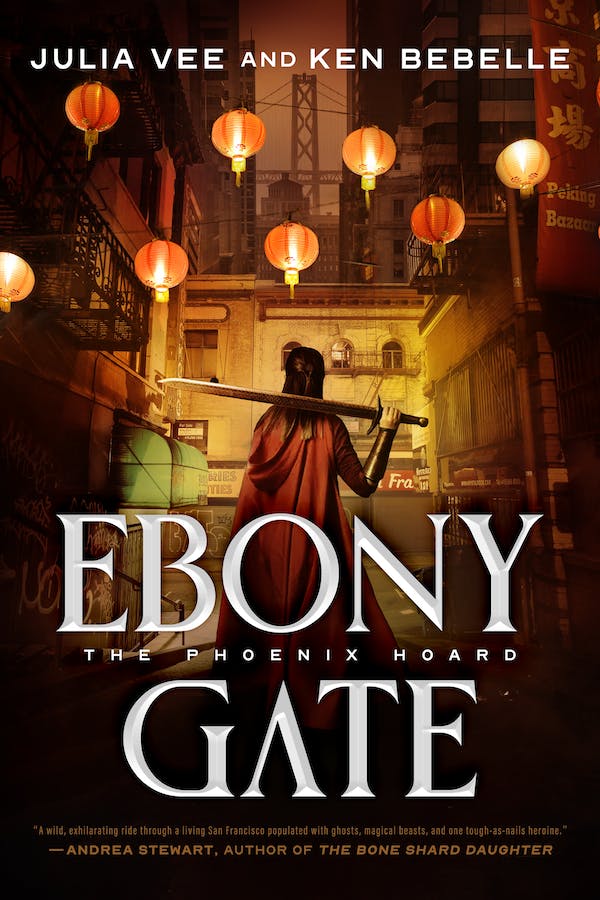 Asian American writing duo Julia Vee and Ken Bebelle have previously collaborated on the Seattle Slayers series. In Ebony Gate (Tor Books, $28.99, reviewed in this issue), they brilliantly employ their extensive knowledge of Chinese and Japanese mythology and lore to create a vivid world of magic in San Francisco's Chinatown. When Emiko Soong, ex-enforcer of a powerful magical family, is called on to save the citizens of San Francisco from a terrifying threat, she doesn't hesitate. She straps on her swords and knives and does what she does best--wreak havoc on evil. Vee and her family reside in California; Bebelle lives with his family in Seattle, Wash.
Asian American writing duo Julia Vee and Ken Bebelle have previously collaborated on the Seattle Slayers series. In Ebony Gate (Tor Books, $28.99, reviewed in this issue), they brilliantly employ their extensive knowledge of Chinese and Japanese mythology and lore to create a vivid world of magic in San Francisco's Chinatown. When Emiko Soong, ex-enforcer of a powerful magical family, is called on to save the citizens of San Francisco from a terrifying threat, she doesn't hesitate. She straps on her swords and knives and does what she does best--wreak havoc on evil. Vee and her family reside in California; Bebelle lives with his family in Seattle, Wash.
Can you tell us a bit about your writing process as a team?
Ken Bebelle: Until meeting Neal Shusterman and Eric Elfman, and Jarrod Shusterman and Sofía Lapuente very recently, I had not met anyone who co-writes the way we do. Julia likes to joke that between the two of us, we have one brain. One writer's brain, that is. We collaborate with Google Docs, and once we get down to writing the words, it's an organic process. Sometimes one of us will get an idea for a scene further along in the book and jump ahead, and then the other will catch up from behind and connect the dots.
Julia Vee: We have literally written the same sentence in the same writing session before. It's a little freaky. But mostly our process is joint ideation, lots of discussion before one word of text is typed up. I think of myself as someone who focuses on the bones of each scene and the story spine. Both of us are exploratory in our drafting approach. We plot first and often end up writing an altogether different novel.
As for research, we have a friend who is an actual sword dealer, and he has been invaluable answering all our sword questions!
 |
|
| Ken Bebelle (photo: Anne Dang) |
|
KB: We love swords! About to order a custom Ebony Gate one from our sword dealer.
We try to plan and plot, really we do. But then we get in there and write, and stuff happens. Our characters make interesting choices. Or we dream up new scenarios that we simply can't let go. Then we go back to the plan (now in tatters), pick up the pieces and rearrange things, and chart a new path. If we didn't allow ourselves to go off script, we wouldn't enjoy the process as much as we do.
What made you choose San Francisco, especially Chinatown, for this setting? Could the story have been set elsewhere with the same impact?
JV: For me there was never a question: we were having a magical Chinatown. San Francisco was the first city I fell in love with, and I've run all across it in many races (it's only 7x7 miles!). My earliest memories of San Francisco were walking with my parents to buy groceries in Chinatown. I saw Chinatown through a child's lens of wonder, and it felt natural that there would be a magical world tucked away there.
KB: I grew up (mostly) in the suburbs south of San Francisco, and when my friends and I started driving, "the City" was where we went to have fun. Despite being in such close proximity, it really did feel like going to a wholly different place. As Julia said, it's geographically small, but feels huge and expansive once you step over the border. That's the feeling we wanted to evoke in the book.
 |
|
| Julia Vee (Nicole Gee Photography) |
|
Writing urban fantasy fiction doesn't seem like an obvious progression from your background as an attorney, Julia, or your career working with prosthetics, Ken. Do you feel your work experiences contributed to your becoming authors of urban fantasy?
JV: Studying and practicing law gave me an appreciation of rules. In contemporary fantasy there is always that interesting aspect of parlay with beings like the Fae, who may not lie, and become expert at skirting the truth.
KB: For me, it was kind of the other way around. Star Wars and The Empire Strikes Back were seminal movies in my childhood. Luke getting his robotic arm at the end of Empire? That literally set me on the path to becoming a prosthetist. I fell into reading urban fantasy later in life when I read a Dresden short in an anthology, then ended up devouring the entire series pretty quickly.
Your bio, Ken, references writing with Julia as a team beginning in eighth grade. How did you two connect as a writing duo?
KB: If I remember correctly, Julia and I first bonded over fantasy novels that we both happened to be reading. I was that kid who never left the house without a book. I'm pretty sure Julia was the same. I don't remember how we learned about it, but the story that we wrote got sent in (by paper mail!) to a fiction contest. We didn't win first place, but we did win $50, so yes, I think it was a successful first collaboration.
JV: Knowing us, we spent our prize money on comic books.
KB: Money well spent! In high school we continued, but did not finish, other projects. I seem to recall a virus-driven post-apocalyptic story, as well as another swords and sorcery with a lot of royal drama. But high school and college prep got in the way, and we never finished those. Then we both went on to college and careers until late 2016, when Julia did NaNoWriMo and contacted me about co-writing again. Amazingly, we fell right back into it without missing a beat.
JV: Ken and I also went to Chinese school for Mandarin. So we had Saturday mornings to hang out, in addition to normal school time. Again, we were likely geeking out over comic books (I was obsessed with Sandman) rather than studying our Chinese textbooks.
The world-building in Ebony Gate is exceptional and absolutely fascinating. Can you say a bit about how you created the specifics of Emiko's world?
JV: We wanted to springboard from East Asian myth and lore, so the underworld of Yomi, and having a shinigami [a Japanese death god] give Emiko her call to adventure was a way to slide the supernatural into the real-world setting of San Francisco. We wrote in a lot of liminal spaces, so doors and gates hold significance for our characters as they move between worlds.
The sword went through a few iterations. The soul idea came from when we were taking a break from the story and writing Emiko's origin story in a novella called Bronze Blade. We realized how much history this sword held, and why she couldn't let it go even as she ached to put the past behind her and begin anew.
KB: For a couple of writers who spend so many words making up magic and the fantastic, we also dwell a lot on whether or not things make sense. It's funny, because we dropped a Japanese death god onto Emiko without batting an eye, but then agonized over the social rules and conventions that governed their interaction. It's the little details that help blend all these disparate elements together.
Specifically about the shinigami, the name translates to "kami of death," kami being Japanese for "spirits or natural powers" from the Shinto religion. The shinigami is a spirit that facilitates the transition to the underworld. But Julia and I imagined that position as a job, and a very bureaucratic one at that. So that was our reframing of a powerful being that holds a blood debt from Emiko's mother.
Emiko's low-key, "normal" magical life in San Francisco morphs into her becoming the reluctant savior of the city. Were you influenced by classics in the genre when contemplating the plotting of her hero's journey?
JV: Without getting into spoilers, very early on, Ken asked me "where is Emiko going?" And I had a clear understanding of her arc from Soldier to [REDACTED] by the end of the series. Ken and I definitely grew up reading SFF classics like Dune and Neverwhere and, more recently, works from Jim Butcher, Patricia Briggs, and Ilona Andrews.
I think of Emiko as having the heroine's journey. What I mean by that is, when a character is on the classic hero's journey, they are often stronger alone. But in some stories, like Guardians of the Galaxy, the protagonist learns that they can rely on their found family, and that is what we wanted for Emiko.
KB: I don't know about classics, but it's definitely one of my "Id elements," as Julia would say. I love the character that just wants to have a quiet life, until the universe forces them to roll up their sleeves and get to work.
Do you plan a series of adventures for Emiko? If so, when might readers see the next episode?
KB: Tor acquired a trilogy from us, so yes! Blood Jade is scheduled for July 2024.
JV: In Blood Jade, Emiko must leave San Francisco and return to the world she left behind. In unraveling the mystery surrounding the General rising, she uncovers family secrets that her mother buried.
Is there anything you would like readers to know about your work and your collaboration that we haven't asked you?
JV: Ken and I love talking about craft and nerding out about worldbuilding. We spend about a year ideating a new world and in trying to figure out how to share this bonus content with our readers, we finally launched PhoenixHoard.com to share the things that didn't make it into the novels themselves. Most of our notes lived on Google Docs and Notions, so we are slowly getting it up on that new site. We commissioned some character art, and hope it will provide readers with a little extra for that immersive experience! --Lois Dyer, writer and reviewer
Book Candy
Book Candy
Hundreds of rare books owned by the late Rolling Stones drummer and bibliophile Charlie Watts will be put up for sale this autumn, the Guardian reported.
---
Bim-bom dzelen'-bom!, a little children's book illustrated by Ukrainian graphic designer Okhrim Sudomora, is on view at the New York Public Library.
---
In June 2023, Milwaukeeans celebrated 150 years of typewriter history, Atlas Obscura noted.
---
Open Culture explored "how Stanley Kubrick adapted Stephen King's The Shining into a cinematic masterpiece."
Rediscover
Rediscover: Milan Kundera
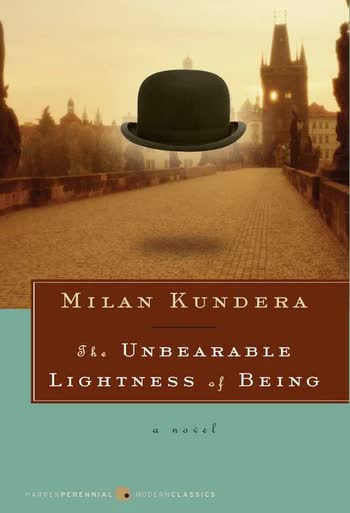 Milan Kundera, "a Communist Party outcast who became a global literary star with mordant, sexually charged novels that captured the suffocating absurdity of life in the workers' paradise of his native Czechoslovakia," died July 11 at age 94, the New York Times reported. Kundera's "run of popular books began with The Joke, which was published to acclaim in 1967, around the time of the Prague Spring, then banned with a vengeance after Soviet-led troops crushed that experiment in 'Socialism with a human face' a few months later." His most enduringly popular novel, The Unbearable Lightness of Being (1984), was an instant success, reprinted over the years in at least two dozen languages. It was also adapted into a 1988 film starring Daniel Day Lewis.
Milan Kundera, "a Communist Party outcast who became a global literary star with mordant, sexually charged novels that captured the suffocating absurdity of life in the workers' paradise of his native Czechoslovakia," died July 11 at age 94, the New York Times reported. Kundera's "run of popular books began with The Joke, which was published to acclaim in 1967, around the time of the Prague Spring, then banned with a vengeance after Soviet-led troops crushed that experiment in 'Socialism with a human face' a few months later." His most enduringly popular novel, The Unbearable Lightness of Being (1984), was an instant success, reprinted over the years in at least two dozen languages. It was also adapted into a 1988 film starring Daniel Day Lewis.
The Times noted that Kundera "could be especially pitiless in his use of female characters; so much so that the British feminist Joan Smith, in her 1989 book Misogynies, observed that 'hostility is the common factor in all Kundera's writing about women.' Other critics reckoned that exposing men's horrible behavior was at least part of his intent. Still, even the stronger women in Kundera's books tended to be objectified, and the less fortunate were sometimes victimized in disturbing detail."
Kundera's fear that Czech culture could be erased by Stalinism was at the heart of The Book of Laughter and Forgetting, which became available in English in 1979. He "had a deep affinity for Central European thinkers and artists--Nietzsche, Kafka, the Viennese novelists Robert Musil and Hermann Broch, the Czech composer Jaroslav Janacek. Like Broch, he said, he strove to discover 'that which the novel alone can discover, including what he called 'the truth of uncertainty,' " the Times wrote.
After playwright Vaclav Havel helped lead the successful Velvet Revolution in 1989, and then served as president, first of Czechoslovakia and then of the Czech Republic, Kundera's books became legal in his homeland for the first time in 20 years, but "many Czechs saw him as someone who had abandoned his compatriots and taken the easy way out," the Times noted, adding that there was scant demand for them or sympathy for him there. By one estimate only 10,000 copies of The Unbearable Lightness of Being were sold.
When Communism ended in 1989, Kundera had been living in France for 14 years with his wife, Vera Hrabankova, first as a university teacher in Rennes and then in Paris. Czechoslovakia revoked his citizenship in 1979, and he became a French citizen two years later.
The last book he wrote in Czech before switching to French was Immortality (1990). His next works were Slowness (1995), Identity (1998), and Ignorance (2000). Kundera was often nominated, but never selected, for the Nobel Prize in Literature. He completed his final novel, The Festival of Insignificance, in 2015, when he was in his mid-80s and living in Paris. In the book, he wrote: "We've known for a long time that it was no longer possible to overturn this world, nor reshape it, nor head off its dangerous headlong rush. There's been only one possible resistance: to not take it seriously."
Read what writers are saying about their upcoming titles


